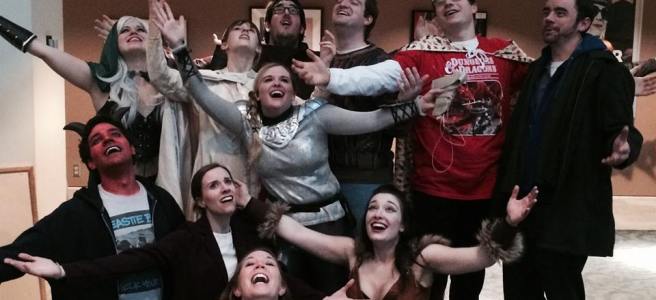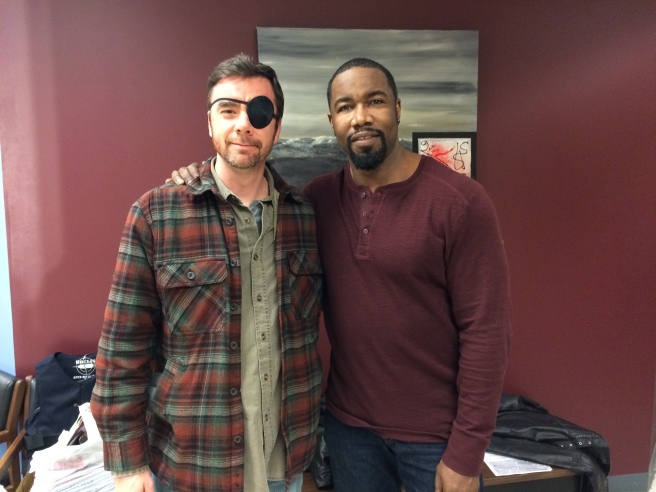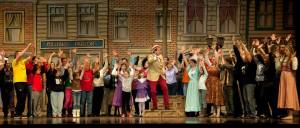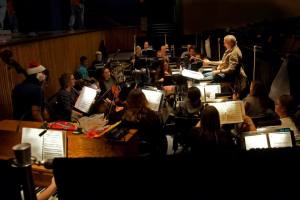As I finish teaching my Summer acting class and prepare to teach another one in the Fall, I am reflecting on what sort of experience my students get from each session. I have offered “The Acting Process” for several years, but I am also interested in the teaching process. I like to take stock of what techniques I’ve refined and what ideas I’ve either disposed of completely, or found myself emphasizing. I wrote a previous blog laying out some tips for actors and here are a few more that I’d like to share. If you want more suggestions, especially involving character work and relationships, then I invite you to register for my upcoming class from August to October.
1. Pick up your cues. When we are in rehearsals, we tend to be very polite to our fellow actors. We wait for them to say their line, we pause for just a second afterward to make sure they’ve said all they have to say, and then we speak. Those little seconds, and even milliseconds, can really add up. They affect the momentum and the pacing in a scene. However, when someone is talking to us in real life, we assume we know how they are going to finish a sentence and we are already formulating our response. If you listen to actual conversations, you’ll notice that often we cut people off before they are done speaking so that we can talk. Now, in a scene, we don’t have to do that for every line (although some overlapping can be good), but if we are ready to come in right as the other actor finishes speaking, we keep the action moving. It also helps us with our active listening (which I also talk about in the post linked above).
2. Plant your feet. When we are beginning to block a scene, holding our scripts and still getting used to the lines, we have a tendency to shuffle our feet. At least, it’s something I’ve noticed a lot of actors do, and I’ve been guilty of it myself. That’s not necessarily a problem in the early stages of a rehearsal, but that muscle memory can get lodged into our subconscious pretty quickly. Even after we’ve learned our lines and practiced our blocking, we might still find ourselves slowly and haltingly moving towards, or away from, the actor we’re speaking to. It muddies the distance between us and disrupts the composition and stage picture of a scene. There is a simple solution. Plant your feet. Take a stand. Embrace the stillness and focus on what you are saying or hearing. We don’t have to be constantly moving. In fact, we usually steal focus when we do. So, root yourself into the ground and don’t move! But, when you do move…
3. Move with purpose. If we are uncertain about what our character should be doing, or second guessing our motivation, that can often translate to a vague and self-conscious blocking choice. We just amble across the stage, stopping and starting, perhaps looking back the way we came, not sure if we should even be moving. So, when you cross the stage, or sit in a chair, or pick up a book from a table, commit to the movement. Go from point A to point B. Decide if you want to get there quickly, slowly, or at a normal pace, and then go for it. You can think about it later, after the scene is over. If we try to analyze it as we’re doing it, we short circuit our actor’s intuition.
4. Make sure you don’t deliver your lines on “tape”. One side effect of memorizing lines and practicing a scene over and over again is that we can get into a vocal pattern without even realizing it, and we start to deliver our lines with the same cadence and tone. It’s sometimes referred to as being on tape. We say the lines the same way, every time and it becomes hard to break free of that vocal trap. A technique that I like, is to refocus my attention towards what my character wants in that given moment, what is standing in my way, and how I want to try and overcome that obstacle. By getting to the immediacy of the problem, I communicate with my scene partner and I’m not just reciting lines.
5. Your first choice in a scene may be good, but it’s usually the most obvious one. I wrote about this in a previous blog, from when I was playing the role of John Wilkes Booth in Assassins. I could have very easily played that character based on my first impressions of the script, but there was so much more lurking under the surface, just waiting to be drawn out. I think it’s a good thing to trust your instincts and go with your gut in the beginning of a rehearsal process, but some actors never dig any deeper. Even if you find really good motivations for a character, explore the opposite of those choices. Delve into their relationship with the other people in the play, what events led them to this current moment, etcetera. No character exists in a vacuum, and by denying yourself the opportunity to research the role, you run the risk of presenting the audience with a person who only exists from the moment the lights come up until the final curtain drops. We want to portray fully realized human beings, with hopes, desires, flaws and a history, even if none of that is spoken aloud. If we don’t do the work, the audience can tell.
6. Be prepared to fail. Embrace it, cherish it and learn from it. It can be very tempting to play it safe in rehearsal and only do work that we think will meet the approval of our fellow actors and (especially!) the director. Unfortunately, that can lead to a measured and palatable performance that doesn’t make an impression on anyone. A good director will create a safe environment where not only is it okay to fail, but it is encouraged! We learn more from our failures than from our successes. When something doesn’t feel like it’s working in a rehearsal, that can lead us to a truly great idea that does work. But, if we’re afraid of looking foolish, then we don’t risk failure and we never find that inspiring moment that someone in the audience might remember for the rest of their life.
7. Trust in the work and find the joy in it! If we have done our job well, then we have written a lot of paperwork, broken down all of our lines to their tiniest beats, figured out many, many tactics to get what we want, and rehearsed our parts exhaustively. The point of doing all of that work, however, is so that we can literally throw it all away and just be in the moment. We trust in that moment, because we have prepared extensively for it and we are not just “winging it”. Being fully present and alive on stage is riveting to watch and, I believe, can only consistently happen when the groundwork has been laid.



 (Disclaimer: I am not allowed to post details on social media about this film until it is through post-production, so I am leaving out key details for now.
(Disclaimer: I am not allowed to post details on social media about this film until it is through post-production, so I am leaving out key details for now. 

